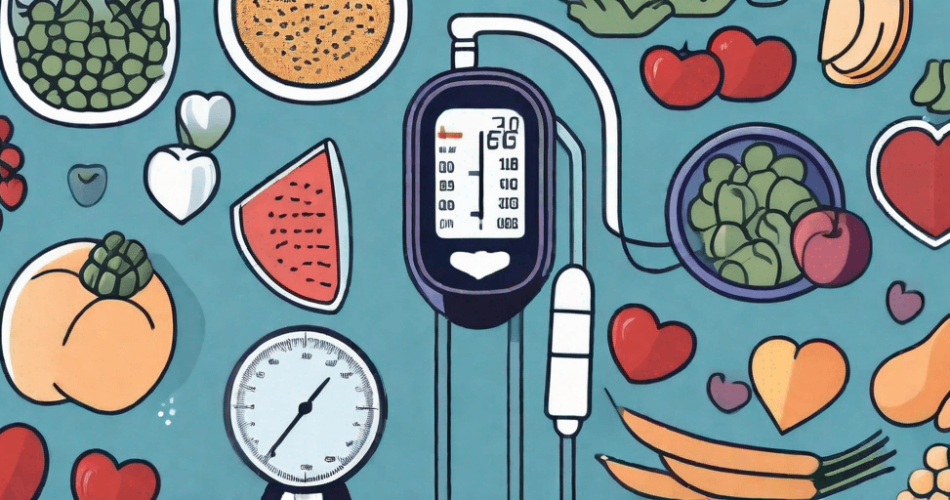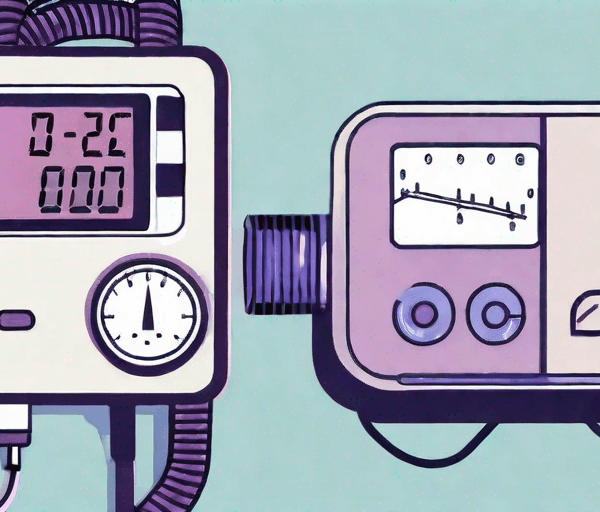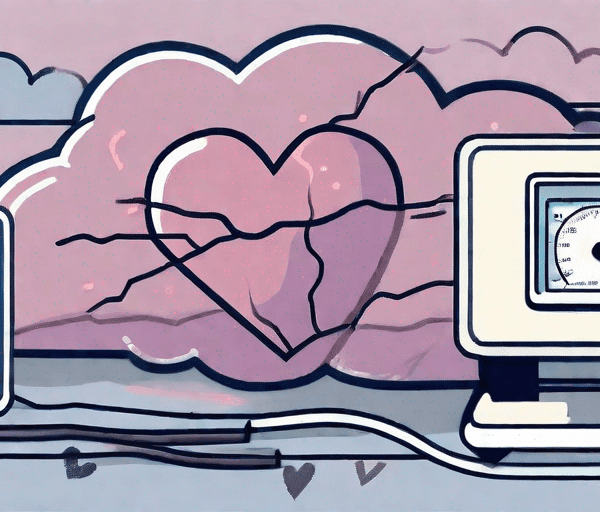High blood pressure, also known as hypertension, is a common health condition that affects millions of people worldwide. It is a chronic condition characterized by elevated blood pressure levels in the arteries, which can lead to serious health complications if left untreated. Fortunately, there are various treatment options available to help manage hypertension effectively.

Understanding Hypertension
Hypertension is often referred to as the “silent killer” because it usually does not cause noticeable symptoms. It is essential to understand what hypertension is and how it affects the body to effectively manage and treat it.
Hypertension, also known as high blood pressure, is a medical condition in which the force exerted by blood against the walls of the arteries is elevated consistently. Blood pressure is measured in millimeters of mercury (mmHg) and is typically recorded as two numbers: systolic pressure over diastolic pressure. Blood pressure reading must be around 110/70 bp or 120/80 mmHg. Readings above that such as 130/80 mmHg means the patient is at risk of hypertension.
There are several factors that can contribute to the development of hypertension. Some of the common causes and risk factors include:
- Family history of hypertension: If your parents or close relatives have hypertension, you may be at a higher risk of developing it.
- Age: The risk of hypertension increases as you get older. This is because blood vessels tend to become less elastic with age.
- Obesity or overweight: Excess body weight puts extra strain on the heart, leading to an increased risk of hypertension.
- Unhealthy diet: Consuming a diet high in sodium and low in potassium can contribute to high blood pressure. Sodium retains water in the body, increasing blood volume and pressure.
- Sedentary lifestyle: Lack of physical activity can lead to weight gain and increase the risk of hypertension.
- Smoking: Smoking damages blood vessels and increases the risk of hypertension and other cardiovascular diseases.
- Stress: Chronic stress can elevate blood pressure levels and contribute to the development of hypertension.
It is important to address these risk factors through lifestyle modifications to effectively manage hypertension. Making healthy choices such as regular exercise, maintaining a balanced diet, reducing sodium intake, quitting smoking, and managing stress can help lower blood pressure and reduce the risk of complications.
Hypertension is usually asymptomatic, meaning that individuals with high blood pressure may not experience any noticeable symptoms. However, if left untreated, hypertension can lead to various complications, including heart disease, stroke, kidney problems, vision loss, and peripheral artery disease. These complications arise due to the strain placed on the heart and blood vessels over time.
Regular blood pressure monitoring and appropriate treatment are crucial to prevent these complications. Lifestyle modifications and medication prescribed by healthcare professionals can help manage hypertension and reduce the risk of associated health issues.

Diagnosing Hypertension
Diagnosing hypertension involves assessing an individual’s medical history, conducting physical examinations, and measuring blood pressure. Early detection is essential to start appropriate treatment and manage hypertension effectively.
Hypertension, commonly known as high blood pressure, is a chronic condition that affects millions of people worldwide. It is often referred to as the “silent killer” because it typically does not cause noticeable symptoms until it reaches advanced stages. Therefore, diagnosing hypertension requires a comprehensive approach that goes beyond just measuring blood pressure.
Medical History and Physical Examination
During a medical history assessment, healthcare providers will ask about a patient’s family history, existing medical conditions, and lifestyle habits. This information helps identify potential risk factors and ascertain if any underlying conditions are contributing to high blood pressure.
For instance, a family history of hypertension increases the likelihood of developing the condition. Similarly, certain medical conditions like diabetes, kidney disease, and hormonal disorders can contribute to high blood pressure. Lifestyle habits, such as smoking, excessive alcohol consumption, poor diet, and lack of physical activity, also play a significant role in the development of hypertension.
Additionally, a physical examination may be conducted to check for any signs of organ damage. The healthcare provider may listen to the patient’s heart and lungs, examine the abdomen, and assess the condition of the blood vessels. These examinations help detect any abnormalities that may be associated with hypertension, such as an enlarged heart or signs of kidney damage.
Blood Pressure Monitoring and Tests
Measuring blood pressure is a critical step in diagnosing hypertension. It involves using a blood pressure cuff and a sphygmomanometer to determine the systolic and diastolic pressures. The systolic pressure represents the force exerted on the arterial walls when the heart contracts, while the diastolic pressure indicates the pressure in the arteries when the heart is at rest.
A single high reading does not necessarily indicate hypertension. To confirm the diagnosis, healthcare providers may recommend multiple blood pressure measurements over a period of time.
In some cases, additional tests may be ordered to assess organ function and identify any underlying causes of hypertension. Blood tests can provide valuable information about cholesterol levels, kidney function, and hormone levels. Urine tests may be conducted to check for protein or blood in the urine, which can be signs of kidney damage. An electrocardiogram (ECG) may also be performed to evaluate the heart’s electrical activity and detect any abnormalities.

Lifestyle Changes to Manage Hypertension
In many cases, hypertension can be effectively managed through lifestyle modifications. Making healthy choices and adopting positive habits can significantly reduce blood pressure levels and improve overall well-being.
When it comes to managing hypertension, dietary modifications are essential. Adopting a healthy diet is key, which includes reducing sodium intake, increasing potassium consumption, and focusing on whole foods. Cutting back on processed foods and incorporating more fruits, vegetables, lean proteins, and whole grains into the diet can help lower blood pressure and promote heart health.
Physical activity and exercise also play a vital role in managing hypertension. Engaging in regular aerobic exercises, such as brisk walking, swimming, or cycling, for at least 150 minutes per week can help lower blood pressure. These activities get the heart pumping and improve overall cardiovascular health. Additionally, incorporating strength training exercises into the routine can further enhance heart health and contribute to better blood pressure control.
Stress management techniques are another important aspect of managing hypertension. Stress can contribute to elevated blood pressure levels, so finding effective ways to manage stress is crucial. Deep breathing exercises, meditation, yoga, or engaging in hobbies and activities that bring joy and relaxation can help reduce stress and promote a sense of calm. Each individual may have different coping mechanisms that work best for them, so it is important to explore and find what works.
Furthermore, it is also worth noting the importance of maintaining a healthy weight and avoiding tobacco and excessive alcohol consumption. Obesity, smoking, and heavy drinking can all contribute to high blood pressure and increase the risk of cardiovascular diseases. Therefore, adopting a healthy lifestyle overall is key to effectively managing hypertension.

Medications for Hypertension
In some cases, lifestyle modifications alone may not be sufficient to control blood pressure. Healthcare providers may prescribe medications to help manage hypertension effectively.
Diuretics
Diuretics are commonly prescribed medications that help eliminate excess water and sodium from the body, reducing the volume of blood and lowering blood pressure.
There are different types of diuretics, including thiazide diuretics, loop diuretics, and potassium-sparing diuretics. Thiazide diuretics, such as hydrochlorothiazide, are often the first choice for treating hypertension. They work by increasing urine production, which helps reduce the amount of fluid in the blood vessels. Loop diuretics, such as furosemide, are stronger and are usually prescribed for individuals with more severe hypertension or kidney problems. Potassium-sparing diuretics, such as spironolactone, help retain potassium while still eliminating excess fluid.
It is important to note that diuretics may cause increased urination and electrolyte imbalances, so regular monitoring is necessary.
Beta-Blockers
Beta-blockers work by blocking the effects of adrenaline, reducing the heart rate and blood pressure. They are often prescribed in cases where other medications may not be suitable or as part of a combination therapy.
There are different types of beta-blockers, including selective and non-selective beta-blockers. Selective beta-blockers, such as metoprolol, primarily target beta-1 receptors in the heart, resulting in decreased heart rate and contractility. Non-selective beta-blockers, such as propranolol, block both beta-1 and beta-2 receptors, which can cause bronchoconstriction and may not be suitable for individuals with respiratory conditions.
Beta-blockers are commonly prescribed for individuals with hypertension, as well as those with other cardiovascular conditions, such as angina or previous heart attacks. They can also be beneficial for individuals with certain arrhythmias.
ACE Inhibitors
Angiotensin-Converting Enzyme (ACE) inhibitors help relax blood vessels, reducing blood pressure. They are often prescribed for individuals with certain conditions, such as diabetes or kidney disease, as they offer additional benefits.
ACE inhibitors, such as lisinopril or enalapril, work by blocking the production of angiotensin II, a hormone that causes blood vessels to constrict. By inhibiting this hormone, ACE inhibitors promote vasodilation and reduce the workload on the heart.
In addition to their blood pressure-lowering effects, ACE inhibitors have been shown to protect the kidneys and reduce the risk of heart failure. They are commonly prescribed as a first-line treatment for individuals with hypertension, especially those with diabetes or kidney disease.
Calcium Channel Blockers
Calcium channel blockers work by preventing calcium from entering the muscle cells of the heart and blood vessels, leading to relaxation and lowering blood pressure. They are commonly prescribed for individuals with co-existing conditions, such as angina or irregular heart rhythms.
There are two main types of calcium channel blockers: dihydropyridine and non-dihydropyridine. Dihydropyridine calcium channel blockers, such as amlodipine, primarily target the smooth muscle cells of the blood vessels, resulting in vasodilation and decreased peripheral resistance. Non-dihydropyridine calcium channel blockers, such as verapamil or diltiazem, have additional effects on the heart and are often prescribed for individuals with certain arrhythmias or angina.
Calcium channel blockers are generally well-tolerated and can be used as a monotherapy or in combination with other antihypertensive medications. They are particularly beneficial for individuals with hypertension and concurrent conditions, such as coronary artery disease or peripheral vascular disease.
In conclusion, managing hypertension requires a comprehensive approach that includes understanding the condition, making lifestyle modifications, and, in some cases, utilizing medication. By adopting healthy habits, such as maintaining a balanced diet, engaging in regular physical activity, managing stress, and avoiding tobacco and excessive alcohol consumption, individuals can contribute to the effective management of their blood pressure levels. However, when lifestyle modifications alone are not sufficient, healthcare providers may prescribe medications, such as diuretics, beta-blockers, ACE inhibitors, or calcium channel blockers, to help control hypertension.
It is important to work closely with healthcare providers, adhere to prescribed medications, and attend regular check-ups to monitor blood pressure and adjust treatment as needed. By taking a proactive approach, individuals with hypertension can effectively manage their blood pressure levels and reduce the risk of complications. Book a consultation with your doctor today on NowServing.



